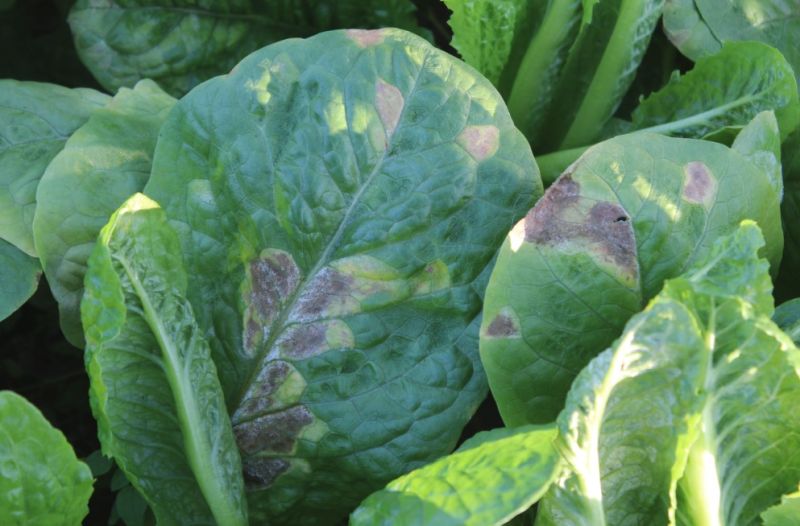
A project worth nearly £300,000 is aiming to revolutionise understanding of downy mildew and late blight, diseases which can cause complete crop loss.
The three-year research programme looks to build on current knowledge and focus on developing methods to detect disease in seeds, tests to understand fungicide resistance and tools for real-time disease risk monitoring.
The extensive £294,000 project, spearheaded by AHDB, benefits from the specialist knowledge of five research contractors and will maximise the investment through collaboration with related Innovate UK projects.
Downy mildews and late blights develop rapidly and have the potential to cause complete crop loss. Lettuce downy mildew (Bremia lactucae) is estimated to cause more than £15 million worth of crop loss per year.
Cathryn Lambourne, project lead at AHDB, said that sustainable integrated management strategies are needed to ensure growers are equipped to cope in the short, medium and long term.
“Control of these diseases currently relies heavily on fungicides but with increased withdrawals of key actives and the development of fungicide resistance.
“A key element of the research will be providing growers with practical and useful knowledge, tools and guidance to help them develop effective control strategies,” she said.
Knowledge gaps such as the dynamics and significance of seed-borne infection and the effects of supra-visual lighting regimes will be investigated.
Emma Garfield, Head of Technical, G’s Growers, said: “Downy mildews are aggressive and pernicious crop diseases which can cause significant crop losses and reduced returns to growers. This project will provide key information to enable growers to manage downy mildew risk in our crops in an integrated way.”
The research consortium includes James Hutton Institute, University of Worcester, NIAB EMR, Stockbridge Technology Centre and RSK-ADAS.
It will support a range of crops including potatoes, lettuce, spinach, stocks, basil, onion, peas and tomatoes. The research began on 1 January 2019.
